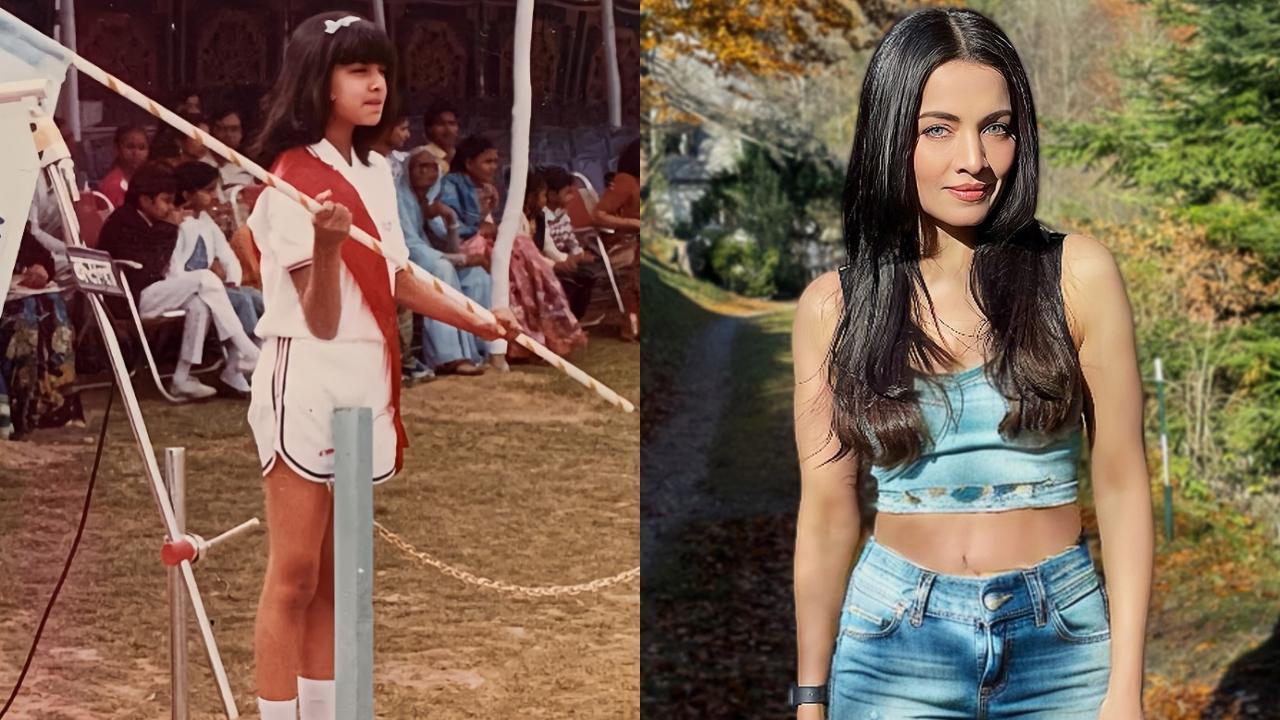
The brutal murder and rape of a doctor in Kolkata has sparked nationwide outrage, raising urgent questions about women’s safety in India. Amidst the profound concern, actress Celina Jaitly has bravely come forward to share her own harrowing experiences from her school days, shedding light on the insidious culture of victim-blaming that persists.
Celina Jaitly, a former beauty queen and noted actress, took to Instagram to share a poignant image from her sixth-grade days. Accompanying the photo, she recounted a chilling narrative of harassment and victimization that began as early as her school years.
“THE VICTIM IS ALWAYS AT FAULT,” Celina began, expressing her frustration and anguish. “In this picture, I was in 6th grade only when boys from a nearby university started to wait outside my school. They would follow the school rickshaw making catcalls all the way home every day.”
Celina described how she tried to ignore these boys, hoping they would eventually lose interest. Instead, they escalated their advances. “A few days later, because of that, they started throwing stones at me in the middle of the road to get my attention. Not one bystander batted an eye,” she lamented.
In a deeply disheartening twist, Celina revealed that instead of receiving support, she was shamed by her own teacher. “I was told by a teacher: It was because I was ‘too westernised and did not wear loose clothes and did not tie my hair in two braids with oil it was my fault!'”
This culture of victim-blaming deepened Celina’s trauma. She recounted a particularly horrifying incident when she was just a sixth grader. “It was also at this age when a man first flashed his private parts to me while waiting for the school rickshaw in the morning. For many years I blamed myself for this incident, replaying the words of the teacher in my mind—’It was MY FAULT!'”
Celina’s harrowing experiences did not end there. The actress shared another disturbing episode from her 11th-grade years when hostility from her harassers turned dangerously aggressive. “I still remember they cut the wire of my scooty’s brakes because I was not acknowledging the university boys who heckled and called me rude names & left lewd notes on my scooty.
. My male classmates got scared for me and informed our teachers.”
However, the response from her teachers was once again a source of blame rather than support. “My class teacher called me and told me, ‘You come across as a FORWARD type of girl, riding a scooty and wearing jeans to extra classes with short open hair—that’s why boys think you are of a loose character.’ It was always my fault.”
Celina vividly recalled the day she narrowly avoided a potentially fatal accident due to her scooty’s brake wires being cut. “I still remember jumping off my scooty to save myself. I was hurt badly and yet it was my fault. My scooty was damaged…I was both physically and psychologically hurt…And I was told it was MY FAULT!”
Amidst her agonizing recollections, Celina emphasized that even her family witnessed the harassment but felt powerless to effect change. Her retired Colonel grandfather assumed the role of her protector, escorting her to and from school. “My retired Colonel Grandfather who fought two wars for our country in his old age had to take to escorting me back and forth to school…Those rude boys who chased me even damaged my scooty and passed derogatory remarks on my Grandpa, making fun of him.”
The image of her grandfather, a war hero, disheartened by the behavior of those he served to protect, is etched in her memory. “Nana stood and stared at them. He turned away, shook his head, and I could read his disgust for the very people he laid his life on the line for,” Celina recalled.
Through her heartfelt post, Celina Jaitly called for collective action and awareness about women’s safety. “It’s time to stand up and ask for our right to be protected. WE ARE NOT AT FAULT,” she concluded.
The Kolkata doctor’s murder has echoed across the country, reigniting essential conversations about gender-based violence and the pressing need for societal change. Celina Jaitly’s brave testimonial serves as a poignant reminder of the silent battles many women face and the critical importance of shifting the narrative from victim-blaming to systemic protection.












